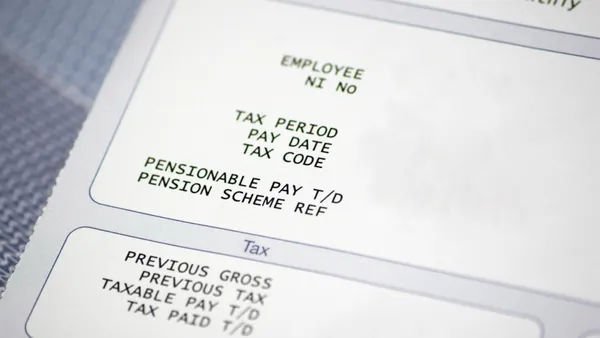Dive Brief:
- Fast Company explores the future in a long piece examining the “quantified organization” – an organization that manages not only their sales numbers but their people through quantitative analysis that’s enabled by sensors on badges.
- “Sociometric badges” created by Humanyze, are an example of this future. These badges use a combination of microphones, infrared sensors, accelerometers and Bluetooth to measure worker movements, personal encounters, speech patterns and even posture to measure a vast swath of office stats, like who is talking to whom where.
- These programs tend to work compared to other office policy changes because they are “linking behaviors with the underlying metrics,” Fast Company reports. But some are still concerned that gathering data in this manner will lead to intense micro-managing and ultimately be “self-defeating.”
Dive Insight:
So far, Humanyze has helped clients such as Bank of America and Deloitte map behaviors to sales, revenues and retention rates. During these programs, results are delivered both individually to the participants (away from management) and in an aggregate report to management that indicates which employee behaviors make a difference to bottom line.
Some of the behaviors revealed by Humanyze lead to office policies that seemed nonsensical from a business perspective but actually lead to productivity increases. One of Bank of America’s call centers dropped individually staggered breaks in favor of 15 minutes of shared downtime so that employees could share tips and frustrations with each other more easily. This program lead to shorter calls, lower stress and a productivity increase by at least 10%.
Some are worried that intense quantification will lead to cultures similar to the one exposed in the New York Times deep dive of Amazon.
“That’s the fear, and it’s a legitimate one," Humanyze CEO and co-founder Ben Waber says. "Most of these applications aren’t aggregating data in a way to make substantial changes in companies; they’re being used to micro-manage people."
But Humanyze says that the measurements their programs produce can measure for values beyond just efficiency or productivity and can help protect companies from “lurching from one fad to the next.”














